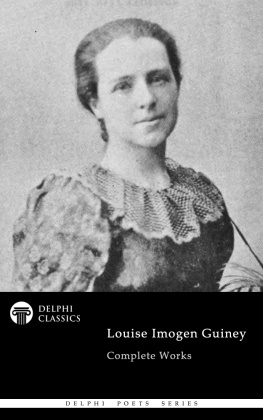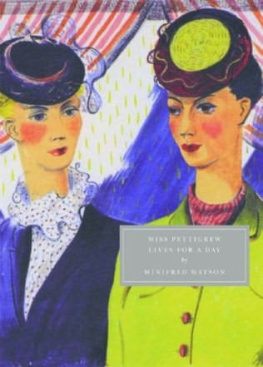CHAPTER I
I have often been asked: "How did you come to be interested in prisoners in the first place?"
It all came about simply and naturally. I think it was W. F. Robertson who first made clear to me the truth that what we put into life is of far more importance than what we get out of it. Later I learned that life is very generous in its returns for what we put into it.
In a quiet hour one day it happened that I realized that my life was out of balance; that more than my share of things worth having were coming to me, and that I was not passing them on; nor did I see any channel for the passing on just at hand.
The one thing that occurred to me was to offer my services as teacher in a Sunday-school. Now, I chanced to be a member of an Episcopal church and their Sunday-school was held at an hour inconvenient for my attendance; however, in our neighborhood was a Methodist church, and as I had little regard for dividing lines among Christians I offered my services the next Sunday to this Methodist Sunday-school. My preference was for a class of young girls, but I was assigned as teacher to a class of ten young men, of ages ranging between eighteen and twenty years, and having the reputation of decided inclination toward the pomps and the vanities so alluring to youth.
It was the season of revival meetings, and within a month every member of my class was vibrating under the wave of religious excitement, and each one in turn announced his "conversion." I hardly knew how to handle the situation, for I was still in my twenties, and as an Episcopalian I had never experienced these storm periods of religious enthusiasm. So while the recent converts were rejoicing in the newly found grace, I was considering six months later when a reaction might set in.
Toward the close of the revival one of the class said to me: "I don't know what we're going to do with our evenings when the prayer-meetings are over, for there's no place open every evening to the men in this town except the saloons."
"We must make a place where you boys can go," was my reply.
What the class proceeded to do, then and there, was to form a club and attractively furnish a large, cheerful room, to which each member had a pass-key; and to start a small circulating library, at one stroke meeting their own need and beginning to work outward for the good of the community.
The first contribution toward this movement was from a Unitarian friend. Later, Doctor Robert Collyerthen preaching in Chicagoand Doctor E. E. Hale, of Boston, each gave a lecture for the benefit of our infant library. Thus from the start we were untrammelled by sectarianism, and in three months a library was founded destined to become the nucleus of a flourishing public library, now established in a beautiful Carnegie building, and extending its beneficent influence throughout the homes, the schools, and the workshops of the city.
Of course I was immensely interested in the class, and in the success of their library venture, and as we had no money to pay for the services of a regular librarian the boys volunteered their services for two evenings in the week, while I took charge on Saturday afternoons. This library was the doorway through which I entered the prison life.
One Saturday a little boy came into the library and handed me the charming Quaker love story, "Dorothy Fox," saying: "This book was taken out by a man who is in jail, and he wants you to send him another book."
Now, I had passed that county jail almost every day for years; its rough stone walls and narrow barred windows were so familiar that they no longer made any impression upon me; but it had not occurred to me that inside those walls were human beings whose thoughts were as my thoughts, and who might like a good story, even a refined story, as much as I did, and that a man should pay money that he had stolen for three months' subscription to a library seemed to me most incongruous.
It transpired that the prisoner was a Scotch boy of nineteen, who, being out of work, had stolen thirty-five dollars; taking small amounts as he needed them. According to the law of the State the penalty for stealing any amount under the value of fifteen dollars was a sentence to the county jail, for a period usually of sixty days; while the theft of fifteen dollars or more was a penitentiary offence, and the sentence never for less than one year. I quote the statement of the case of this Scotch boy as it was given me by a man who happened to be in the library and who knew all the circumstances.
"The boy was arrested on the charge of having taken ten dollarsall they could prove against him; and he would have got off with a jail sentence, but the fool made a clean breast of the matter, and now he has to lie in jail for six months till court is in session, and then he will be sent to the penitentiary on his own confession."
Two questions arose in my mind: Was it only "the fool" who had made a clean breast of the case? And if the boy was to go to prison on his own confession, was it not an outrage that he should be kept in jail for six months awaiting the formalities of the next session of the circuit court? I did not then think of the taxpayers, forced to support this boy in idleness for six months.
That night I did not sleep very well; the Scotch boy was on my mind, all the more vividly because my only brother was of the same age, and then, too, the words, "I was in prison and ye visited me not," repeated themselves with insistent persistence until I was forced to meet the question, "Did these words really mean anything for to-day and now?"






